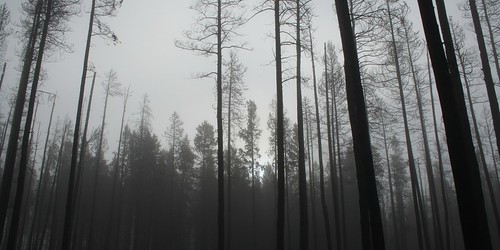
{Bibliochaise, from nobody&co..}
From "Prologues to a Personal Library," by Jorge Luis Borges:
A book is a thing among things, a volume lost among the volumes that populate the indifferent universe, until it meets its reader, the person destined for its symbols. What then occurs is that singular emotion called beauty, that lovely mystery which neither psychology nor criticism can describe.
Anyone with an interest in the various schema by which books may be organized is liable at some point to find himself thinking about the furniture that carries out those organizational plans. Bookshelves are a remarkably simple, effective design for most of our storage and retrieval purposes. Yet they're not very good at handling one of the most basic problems that has faced scholars and dilettantes alike since the first bound volumes: how to deal with the fact that one is often reading half a dozen or more books more or less simultaneously? How is one to keep all those books in easy reach and usefully organized--especially when so many readers, like me, have already given over control of the most natural resting place for extra volumes--the lap--to a cat or two?
Via the Athanasius Kircher Society, I've learned about an admirable solution from sixteenth-century Italian engineer Agostino Ramelli: the Book Wheel.

Here's how Ramelli described it in 1588:
A beautiful and ingenious machine, which is very useful and convenient to every person who takes pleasure in study, especially those who are suffering from indisposition or are subject to gout: for with this sort of machine a man can see and read a great quantity of books, without moving his place: besides, it has this fine convenience, which is, of occupying a little space in the place where it is set, as any person of understanding can appreciate from the drawing.
Meanwhile, in this week's New Yorker Anthony Grafton highlights more inventions designed to help sixteenth- and seventeenth-century scholars deal with the unprecedented flood of books:
Jacques Cujas, a sixteenth-century legal scholar, astonished visitors to his study when he showed them the rotating barber's chair and movable bookstand that enabled him to keep many open books in view at the same time. Thomas Harrison, a seventeenth-century English inventor, devised a cabinet that he called the Ark of Studies: readers could synopsize and excerpt books and then arrange their notes by subject on a series of labeled metal hooks, somewhat in the manner of a card index. The German philosopher Leibniz obtained one of Harrison's cabinets and used it in his research.
The Ark of Studies reminds me of Dr. Johnson's relatively simple system for organizing the source materials for his Dictionary. Henry Hitchings describes Johnson's method in Definining the World (2005):
When he identified a passage suitable for quotation, he underlined with a black pencil the word he meant it to illustrate, marked the beginning and end of the passage with vertical strokes, and wrote the initial letter of the chosen word in the margin. Working in pairs, the amanuenses would then go over the books Johnson had marked. Each time one of them came to a marked passage, he would transcribe it on to a quarto sheet and strike out the marginal letter. . . . The quotations were set out in columns, and, once full, the quarto sheets were cut up into slips, each bearing a single quotation. These copy slips were kept in bins, and arranged in alphabetical order by the amaneuenses. As work proceeded, the juggling of copy slips unfortunately allowed some of the illustrations to be lost. We can see evidence of this occasionally in the finished Dictionary. Explaining one sense of the verb "to cream," Johnson says is "used somewhere by Swift," while another word, "dripple," is "used somewhere by Fairfax."
Of course, even the best scheme and the most ingenious book furniture won’t avail in those situations where the information one desires is simply not there, as Guy Davenport laments in "Dictionary":
Some years ago, on a particularly distraught evening, the drift of things into chaos was precipitated by my consulting Webster's Third International for the word Mauser. All I wanted to know was whether it sported an umlaut or not. It wasn't there. I paid $47.50 for my Webster's; it weighs as much as a six-year-old girl; and I had to build a table for it, as it is too bulky to go into a bookshelf, and will anyway come all to pieces unless it sits open day and night.
Perhaps we should just give up and move into Borges's Library of Babel, where we accept a life of isolation for the certainty that the knowledge we seek is in there, somewhere:
There is no combination of characters one can make--dhcmrlchtdj, for example--that the divine Library has not foreseen and that in one or more of its secret tongues does not hide a terrible significance. There is no syllable one can speak that is not filled with tenderness and terror, that is not, in one of those languages, the mighty name of a god. To speak is to commit tautologies. This pointless, verbose epistle already exists in one of the thirty volumes of the five bookshelves in one of the countless hexagons--as does its refutation.
To be honest, that probably is where we belong, immured in the endless library. Even the fact that we're worrying about these organizational problems at all suggests that we fit the pejorative connotation that Dr. Johnson ascribes to the term "booklearned":
Versed in books, or literature: a term implying some slight contempt.To back up his assertion, Johnson turns--this time with attribution in hand--to a sharp little line from Jonathan Swift:
He will quote passages out of Plato and Pindar, at his own table, to some booklearned companion, without blushing.
We book people can tell ourselves that an ingenious piece of furniture may be all we need to establish order, but we know better. Entropy and its constant companion infinitude will never leave off plaguing us.
From Certain of the Chronicles, by Levi Stahl:
After a long night, I have at times slipped into dreams wherein I wander a vast ship full of books, shelves as numerous as the waves of the ocean, floors as many as the footsteps on a mountain, all unread, pages uncut, unknown. I know in my heart that I can find my way out, but I fear in my soul that I cannot find my way in.





















